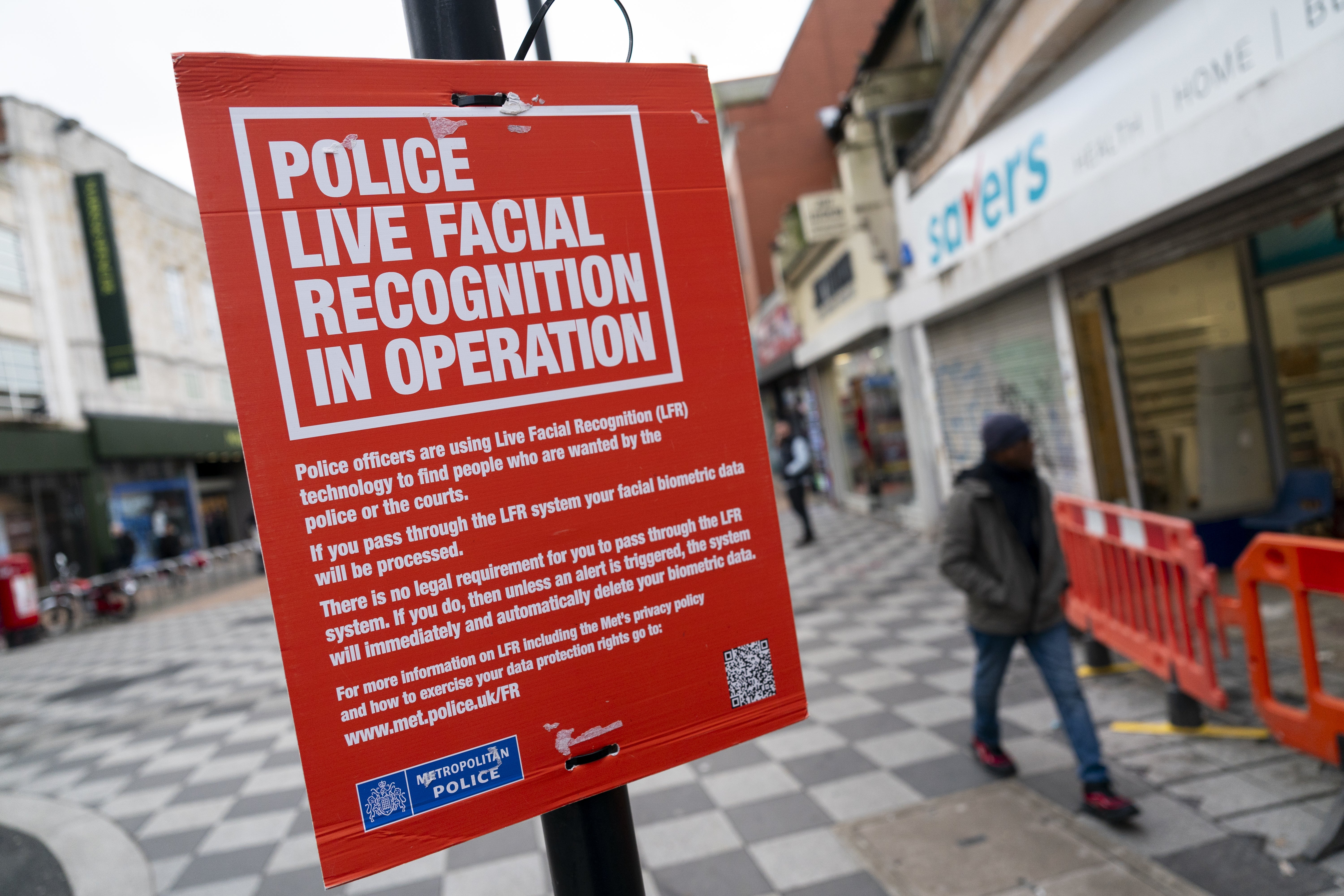Last February, while commuting home after my shift, I was misidentified as a suspected criminal by Metropolitan Police officers using live facial recognition cameras.
I had been travelling from Croydon, where I had been on patrol with the community outreach organisation, Street Fathers. We engage with young people, groups, and gangs to provide positive male role models and mediation.
I had just come out of London Bridge station when I felt a nudge on my shoulder, and someone took my elbow. I turned around to see a group of six or seven Met Police officers, one of whom said: “Sorry, sir – we believe you’re a wanted man.”
When I asked what for, they said: “That’s what we’re here to find out.”
One officer used a handheld device to compare my features to those in a photo. I assured them that I was not the person they were looking for, and they seemed unsure about the similarities – for one, the person in the picture didn’t have locs, as I do, but small plaits. When the officers suggested taking my fingerprints for verification, I refused, firmly stating that I would not provide my fingerprints based on a mistaken identity.
The police can’t tell people that they are generically “wanted”. If somebody’s actually wanted, you come prepared with a full name and address, and, crucially, the supposed crime.
The situation also highlighted a concerning difference in how I was treated compared to another man the police stopped. They greeted him with: “Hello, sir. You've been recognised.” This man, a white Eastern European, was “recognised” – but I, a Black man in my late thirties, was branded as “wanted”.
My experience was disheartening, emphasising the broader issues of racial profiling and the flaws in facial recognition technology used by the police. And yet the government this week announced it is to move forward with a wider rollout of live facial recognition technology.
In the coming weeks, seven police forces – Greater Manchester, West Yorkshire, Bedfordshire, Surrey, Sussex, Thames Valley and Hampshire – will start using vans equipped with live facial recognition cameras, as part of a government overhaul of neighbourhood policing. The home office insists the technology will be deployed to catch “high-harm” offenders, and that there are new rules drawn up to support its use and ensure “safeguards and oversight”.
But this raises serious concerns, especially given how the tech seems to disproportionately affect people of colour. A friend of mine experienced something similar when he was wrongly stopped for an old charge that shouldn’t have been on record.

When I took the Met Police to court for wrongly identifying me as a wanted man, they settled – but it raises questions about their procedures and accountability. It brings to mind past discriminatory practices, such as the “sus laws” that stemmed from the 1824 Vagrancy Act and enabled police officers to move on anyone they deemed suspicious. They were overwhelmingly used against young Black people and eventually repealed in 1981.
Yet this LFR technology also encourages selective policing by targeting areas with predominantly Black and brown communities. Last month, the Met announced that it would be using LFR technology at the Notting Hill Carnival – yet its use seems absent from other festivals. This points to a persistent trend: police often focus their efforts on communities of colour, hoping that they will catch someone rather than acting on specific intelligence.
Addressing systemic racism in policing requires acknowledging that these biases are deeply ingrained and difficult to change. Even with representation within the police force, such issues persist: the officer who stopped me at London Bridge was Black. Statements like “I can’t be racist, I have Black friends” oversimplify the complexities of race and accountability in policing.
It’s essential to advocate for fair treatment by law enforcement for all individuals, promoting equality and accountability in policing practices. Otherwise, who knows who will be misidentified in future?
Shaun Thompson is an anti-knife crime activist with Street Fathers







